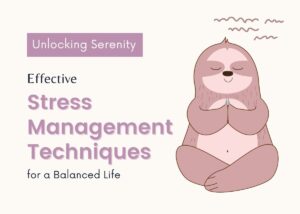Right now, cognitive impairment and dementia rates are exponentially increasing throughout the world and are projected to sharply rise in move developed countries, particularly those in the North Americas.
Table of Contents
By 2031, it is estimated that more than 1 million Canadians will be living with some kind of cognitive impairment, like Alzheimer’s or dementia. The World Health Organization (WHO) estimates that by 2050, over 22% of the world’s total population will suffer from some kind of mental impairment.
Although the cause of dementia and Alzheimer’s is still largely unknown, links have been found with the lifestyle choices we make throughout our lifetime, such as what we eat, drink, and how long we sleep. Poor lifestyle choices have a direct effect on our brain health. Therefore, if you want to keep your brain healthier for the long run and ward off any cognitive impairment, you have to start making the best decisions for your health and wellness now.
The Essentials of Brain Health
There are three things you should be focusing on if you want your brain to remain in peak condition for many years. These three brain health essentials are oxygen, stimulation, and nutrition.
Oxygen
Without oxygen, the body cannot function. Therefore, because we breathe, we must always have a high level of oxygen in our system, right? No. In fact, most people are only utilizing a very limited amount of space in their lungs, induced by shallow breathing. Shallow breathing can result in less oxygenated blood and increased anxiety.
The way to counteract this would be to try deep or controlled breathing, also known as “diaphragmatic breathing.” Many athletes and yogis also practice this kind of breathing, because deeper, fuller breaths help with circulation, concentration, alertness, and relaxation. Deeper breather also reduces stress.
Worried you might not have enough oxygen? Check for the following:
- Lack of concentration
- Inability to focus
- Cold hands and feet
- White nail beds
- Cold nose
- Must wear socks at night
Stimulation
Exercise—both mental and physical—keeps your brain and body working optimally, even in your older years. Muscles need to be worked in order to maintain the neural pathways. Training your brain helps with nerve connection, alertness, and mental clarity. Because of this, you should never stop being physical activity and learning new things. Without this continuous stimulation, the neural connections will shrivel up.
Ways to stay stimulated include:
- Learning new languages
- Taking up a new hobby
- Yoga
- Traveling
- Reading
- Writing
- Attending seminars
- Meeting new people and socializing
- Hiking and other adventures
- and so on
Nutrition
Imagine your body as a car. Without the proper fuel, the engine isn’t going to purr. In the human body, there’s two types of fuel that work: glucose and ketones. Glucose is made primarily from carbohydrates, while ketones come from fat. Glucose needs to be readily available for the body to deliver energy to working muscles and the brain.
In fact, the brain consumes about 20% of all glucose in the body just to function normally. Unless you are on a ketogenic diet, you need to consume adequate amounts of whole grains (complex carbohydrates). Otherwise, you’ll have brain fog throughout the day.
It is never too late to start focusing on brain health. Without a healthy brain, the rest of your body won’t be able to keep up. Focus on the essentials in this list, such as fresh air and exercise, and remember that the choices you make are remembered by your brain and body. So choose wisely.







